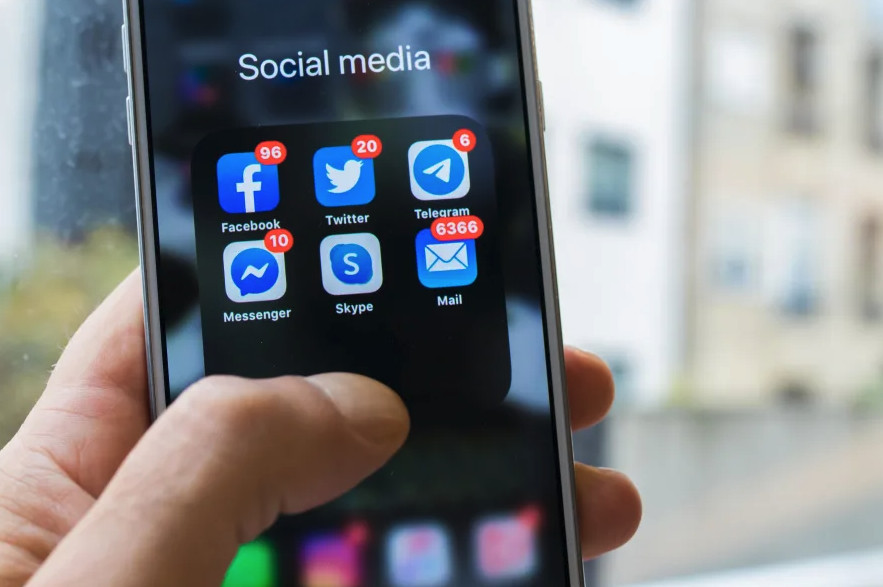
Politics & Society
Fake news in the age of COVID-19

COVID-19 has generated an information – and misinformation – overload. But what people need are updates that are relevant, concise and don’t offer false hope
Published 7 May 2020
COVID-19 has resulted in an unprecedented level of global communication on just one issue.
If you are working from home, your employer will be sending you regular pandemic updates. You have also likely had COVID-19 related updates from banks, internet providers, schools, GPs, supermarkets and many other services you use.

On top of official advice, there’s also the news reports on the pandemic, communications with family and friends on WhatsApp or social media, as well as the Facebook ‘cures’ and Twitter conspiracy theories.
Right now, the internet is awash with information and misinformation clamouring for your attention.
The issue is that too much information that is too complex can make us anxious. And being susceptible to information overload is more likely when people are dealing with stress – who is feeling relaxed and comfortable right now?

Politics & Society
Fake news in the age of COVID-19
Once we are overloaded, we disengage or look for the simplest information, whether it’s the most accurate or not. Known as ‘satisficing’, this usually means that people revert to their preconceived ideas of the truth.
So, in the midst of a global pandemic, it is vitally important to have scientifically accurate information available to counter this. But the problem is that the science on COVID-19 is evolving daily.
People want the comfort of some certainty when there is no certainty to be had.
In this environment, well-designed, targeted and easy to digest information is key to ensuring that accurate messages are heard or read.

More information isn’t necessarily the answer. Instead, organisations and governments need to focus on minimising unnecessary information and providing quality information in a digestible form.
The internet allows information to be distributed almost instantaneously at negligible cost.
This enables scientists to release information about COVID-19 before it has undergone the usual checks and reviews. Science progresses with shared information but this sharing exponentially increases the amount of information in the public domain too.

Health & Medicine
What is COVID-19 doing to our mental health?
Journalists and commentators are seeking and spreading information with fewer checks to keep pace with public appetite for information. Politicians and organisations are also responding to each development and their responses also add to information overload.
Some Australians working from home may have more time on their hands and some are filling that spare time searching for new information and sharing their thoughts on coping with COVID-19.
You may notice people who traditionally might not have said much online, now only have the online space to share their ideas.
This mass of information is shared fast, only to be quickly contradicted and supplanted by newer information. It creates uncertainty and urgency – fertile ground for anyone who feels overwhelmed and confused.

Providing as much information as possible isn’t the best approach, however tempting it may be. The most effective communication provides relevant, concise and clear messaging.
There should be clear contextual information, sub-headings that focus the attention of the reader, and no repetitions. Fewer emails, that are shorter and contain easy-to-process take-home actions are crucial.
As individuals, we can think about how much information we consume and when, and whether it increases or decreases our anxiety.

Sciences & Technology
Can our internet cope with so many of us at home?
Consuming information in a way that decreases anxiety will leave us better able to cope.
One strategy for the sensible consumption of information is to consider the source.
Is the information coming from a friend on Facebook or an advertisement? Then ask some challenging questions.
Or is it coming from a government website, a legitimate research institute or reputable source of news media?
Even more important is to take a break, rather than fuelling our own anxieties by engaging in a 24/7 spin news cycle.

Then there’s the scams.
Unexpected emails that appear to be from known senders should be treated with caution. E mail scams are increasingly sophisticated, particularly at the moment. Elaborate graphics are often used to make content look expert and well-prepared but hide wildly inaccurate data.
On the flip side, as individuals, we must consider how much information we produce and whether it is useful and well packaged for our intended audience. We also need to consider what information we amplify, retweet or share. Sharing every bit of ‘useful information’ we come across only contributes to information overload.
New information is emerging hourly and we crave answers, but we must be cautious not to overburden the people around us with information and to share only data that is correct, useful and that doesn’t offer false hope.
This will ensure that finding the truth about COVID-19 isn’t like finding a needle in a haystack.
Banner: Getty Images